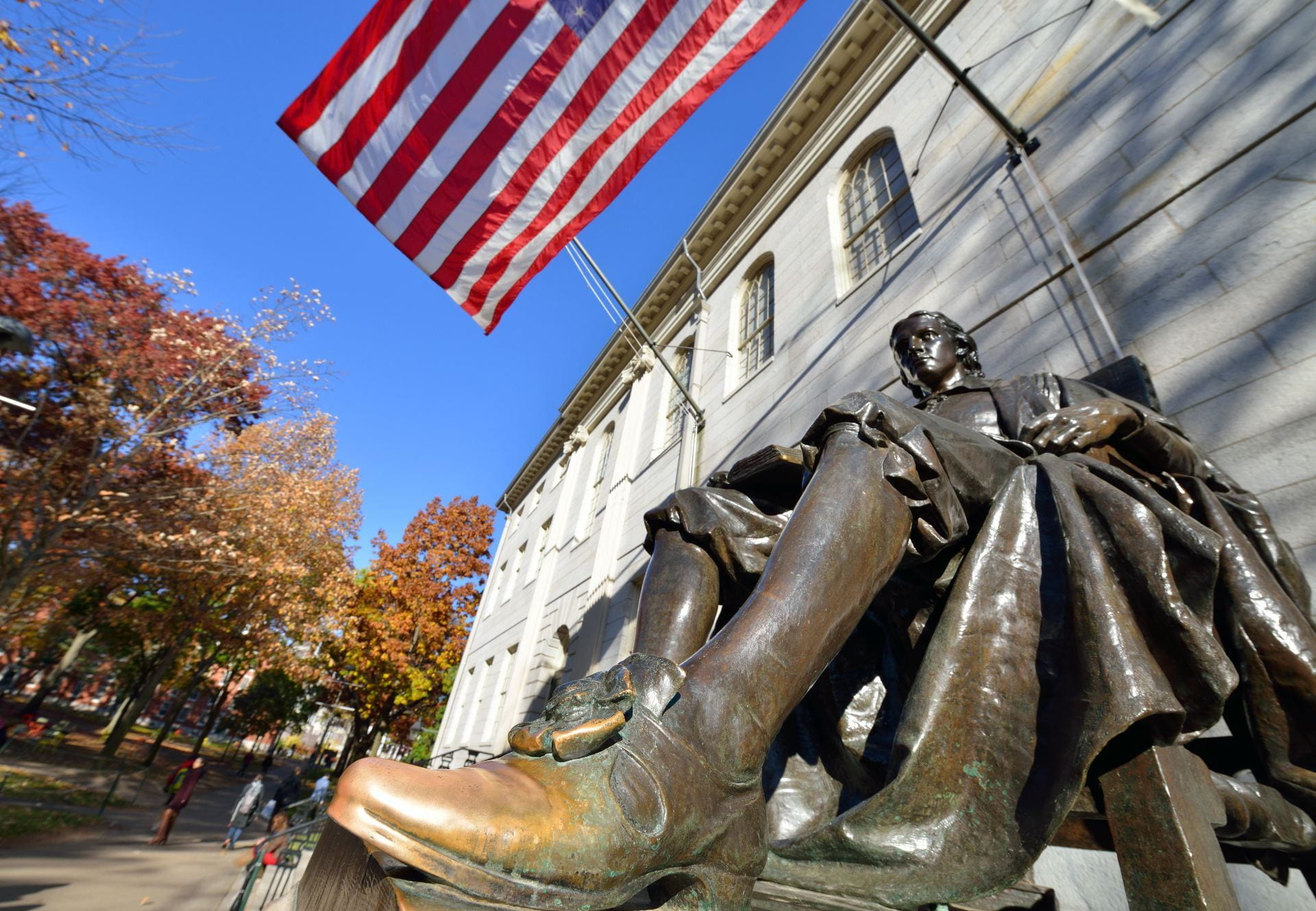From March 16th to March 19th, four Harvard undergraduates attended the 69th session of the United Nations Commission on the Status of Women (CSW69) in New York City. Organized by the Harvard College Women’s Center and supported by funding from the College’s Intellectual Vitality Initiative, the trip offered a unique opportunity for students to engage directly with global leaders at the forefront of gender equality and women’s rights.
As the largest annual convening on gender equality hosted by the United Nations—and the second-largest UN forum overall—CSW69 brought together diplomats, activists, policymakers, and scholars to shape international discourse on women’s rights and gender equality. Representing Harvard were Meena Karimi (’28), Danielle Emefa Dake (’27), Kaitlyn Tran (’26), and Fiona Millan (’26), who engaged in a rigorous three-day program of briefings, panels, and interactive events. More than just attendees, the students emerged as active participants and thought partners throughout the conference.
The CSW’s dynamic and interdisciplinary environment provided a platform for students to hear directly from high-level officials, including Amina J. Mohammed, Deputy Secretary-General of the UN, and Sima Bahous, Executive Director of UN Women. Through meetings with representatives from countries such as Mexico, Canada, Afghanistan, Germany, Greece, and France, students participated in critical conversations on a wide range of global gender issues.
Among the topics explored were the inclusion of forced marriage and sterilization in international definitions of crimes against humanity, the disproportionate impact of environmental degradation on women’s health and economic outcomes, and strategies for inviting youth into the future of sustainable agri-food systems. Discussions revealed the staggering economic costs of gender-based disparities related to pollution, estimated at over $8 trillion annually, while also emphasizing the transformative power of youth engagement in shaping a more equitable world.
The experience went far beyond academic enrichment for each participant—it sparked a deeper personal and professional transformation. “Throughout the trip, I felt a constant current of intellectual vitality,” said Emefa Dake. “Our group conversations—whether after sessions, over meals, or on train rides—were filled with honest reflections and bold questions. We didn’t shy away from difficult topics, and I appreciated how willing everyone was to share, challenge, and learn from each other.”
Kaitlyn Tran (’26) had the opportunity to deliver an intervention—a 90-second speech—during a Food and Agriculture Organization (FAO) session. Her remarks connected climate, science, and gender equity, illustrating the cross-cutting nature of global food systems. “Issues like agriculture are cross-cutting, transcending multiple fields and impacting the globe at large,” she explained. “By drawing connections to climate, science (pesticide usage), and technology (gendered digital divide), I strived to make my speech one that all youth—even those not directly interested in agriculture—could resonate with.”
The deeply interdisciplinary nature of the conference helped students understand how these issues intersect with global systems and policies. “While I came in with a strong academic foundation in gender and development, nothing compared to hearing firsthand from those on the frontlines of gender justice,” said Dake. “I began to understand how gender inequality is shaped not only by local cultural norms, but also by global systems—from economic structures to climate crises. These intersections were visible in every session.”
The transformative potential of experiential learning was equally clear for first-year student Meena Karimi (’28), who reflected on the importance of personal growth. “Through this experience, the most valuable lesson I gained was confidence in networking—something I previously had little experience with,” Karimi said. “It helped me grow socially and emotionally while making me excited for my sophomore year, when I can declare a concentration and continue building on this momentum through more focused academic and advocacy work.”
Now more than ever, students recognize the urgent need for cross-sector, collaborative leadership on issues at the intersection of gender, health, education, and global development. “The range of perspectives—from youth activists and legal scholars to grassroots organizers—challenged me to think more expansively about what gender justice means in diverse contexts,” said Dake.
This delegation marked the first time the Harvard College Women’s Center organized a student trip to CSW—and with support from the Intellectual Vitality Initiative, they hope to develop more opportunities like this one. Assistant Director Lina Tori Jan, who developed and spearheaded the initiative, emphasized the potential this international exposure holds for student development. “Opportunities like CSW69 allow our students to connect their academic studies to the real-world challenges of gender, health, education, and international security,” said Tori-Jan. “We are excited to continue to integrate this work into the fabric of the Center, enabling our students to engage in global discourse both on and off-campus.” Interim Director Bonnie Talbert echoed this vision: “Research shows that including women in international problem-solving efforts improves outcomes. This trip provided our students with the insights, motivation, and evidence necessary to understand their vital role as leaders in gender-sensitive solutions to international challenges. It is a testament to the importance of intellectual vitality and the power of applied learning.”
As CSW69 concluded, the Harvard delegation returned to Cambridge not only with notebooks full of research notes and contacts but with a deepened sense of purpose, global awareness, and the emerging confidence of scholars, leaders, and advocates in the making.
